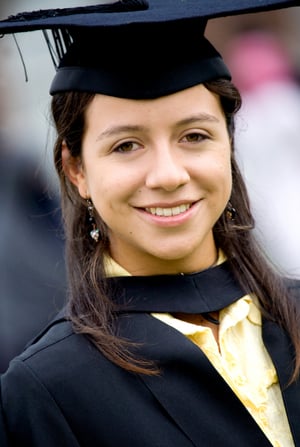 Last week I used this space to mention the kinds of colleges Trinitas alumni are attending. I also mentioned last week that we had asked our alumni in a survey last summer to tell us what they are studying or had studied in college. The reason I want to talk about our alumni’s chosen fields of study this week is not to harp on college more, but to hopefully add to the case that a classical education can be good preparation for lots of different endeavors.
Last week I used this space to mention the kinds of colleges Trinitas alumni are attending. I also mentioned last week that we had asked our alumni in a survey last summer to tell us what they are studying or had studied in college. The reason I want to talk about our alumni’s chosen fields of study this week is not to harp on college more, but to hopefully add to the case that a classical education can be good preparation for lots of different endeavors.
Let’s take a quick look at the numbers to see what our alumni have been studying since leaving Trinitas. For starters, 25% of those alumni who responded to the survey were either still undeclared in their fields of study or responded simply that they earned an AA, BA, or MA without giving any specifics. Another 16% were in fields like business or culinary or hospitality management. 24% had entered a field we could generally label humanities; for example, some were English majors or History majors or Liberal Arts majors—we also put one attorney in this category.
The number that I think will be a big surprise to some of us—though it shouldn’t be—is that the other 35% of respondents entered science and math fields. That’s right, the majority of Trinitas alumni have entered a field of study that has a heavy science or math emphasis. Many of these alumni are studying to be or have already become nurses, engineers, or accountants—one is earning a PhD in Chemistry. This seems like a good time to remind you, gentle reader, that about 90% of our alumni report that Trinitas has prepared them well for college. Yes, even most of the 35% who entered science and math fields say they were well prepared.
People looking only at the surface of classical education sometimes come away thinking it is a very bookish education, heavy on words. They are correct, at least by today’s STEM standards, but that doesn’t mean it is light on science and math, at least by reasonable standards. Classical education is an education for the whole person—heart, soul, and mind. Those who receive a classical education receive the formation of a whole human person, or in Chesterton’s words, “a transfer of a way of life.” Two ways of life transferred to classical students are the desire to learn and the knowledge of how to learn—not just how to learn literature, but how to learn anything.
The whole time a good classical education is working within to form the whole person, it is also working on to spark wonder that matures into a lifelong desire to learn; furthermore, it is training habits and ordering the mind and passing on ways of thinking about ideas that give a student the tools he or she needs to learn any subject encountered. And that’s why 35% of Trinitas alumni—young people who skipped the STEM craze—can with few exceptions enter the science and math fields and find themselves well prepared to do so. Well done Trinitas alumni! The Lord bless you!
Mr. Gilley


